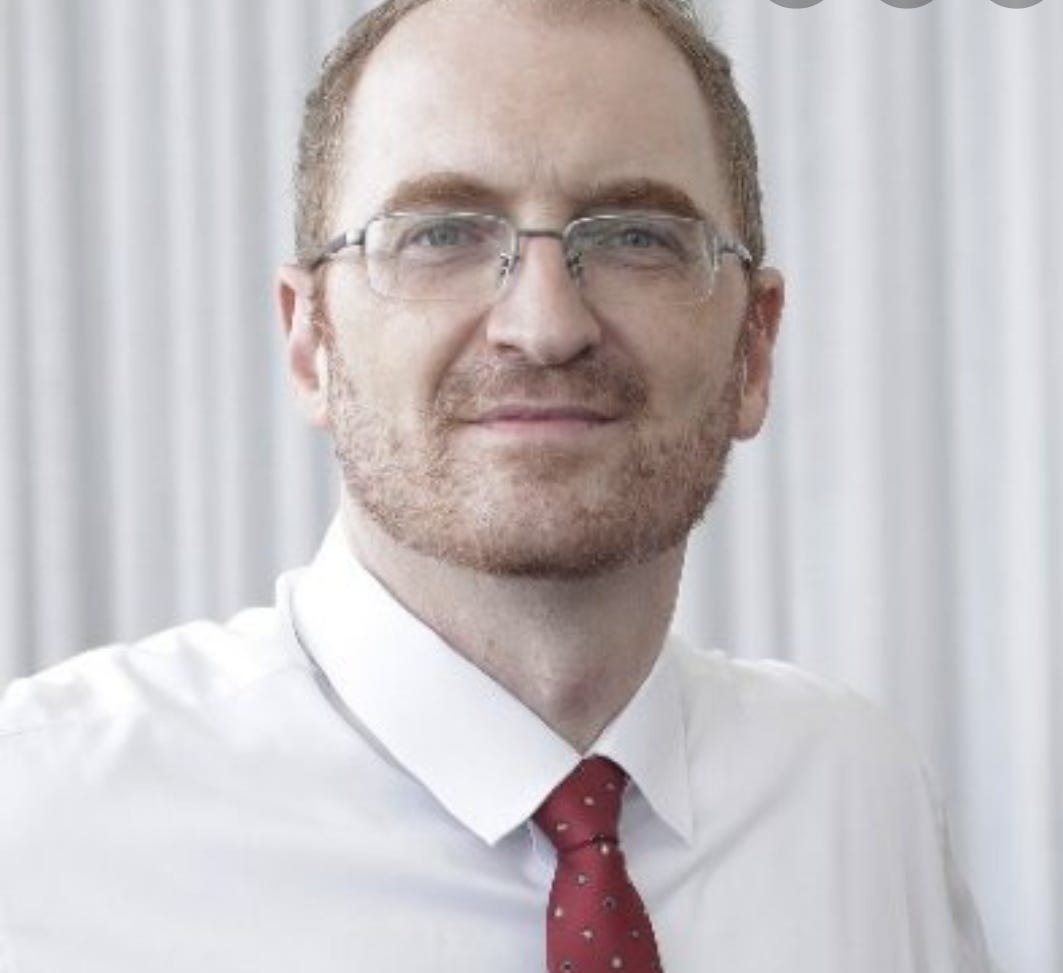The AP's Firing of Emily Wilder and the Cowardice of 'Objectivity'
No First Amendment rights for protectors of the First Amendment
(I maintain ClassWarDaily.com in between assignments for publishers who compensate me for my labor. If you value my work, please support it with a monthly $7 subscription, forward this email to your friends, and share it on social media.)
On May 15, the Israel Defense Forces (IDF) bombed a tower that contained the offices of numerous media outlets, including the Associated Press (AP). Israeli officials failed to provide any justification for the bombing other than that the building was also being used by Hamas. That’s the same vague reasoning provided every time the IDF bombs a civilian target, whether it’s a media office, a hospital, or a school.
“The world will know less about what is happening in Gaza because of what happened today,” AP president Gary Pruitt said in a public statement.
Despite having its own office leveled in an unjustified attack by the Israeli military, the AP recently fired Emily Wilder — one of its own journalists — for her pro-Palestine activism in college when she attended Stanford University. According to Wilder, her firing was the result of a smear campaign by the Stanford College Republicans that was amplified by conservative pundits like Ben Shapiro, and that she was fired despite promises from higher-ups that she wouldn’t be fired for her past activism. Wilder’s sudden termination even prompted a lengthy Twitter thread from a former AP editor about the problematic nature of policing journalists’ social media accounts.
“It’s terrifying as a young woman who was hung out to dry when I needed support from my institution most,” Wilder wrote. “And it’s enraging as a Jewish person — who grew up in a Jewish community, attended Orthodox schooling and devoted my college years to studying Palestine and Israel — that I could be defamed as antisemitic and thrown under the bus in the process.”
In an email to staff, AP U.S. West News Director Peter Prengaman — a generic white guy with a generic white guy name in a generic red tie posing in front of a generic white background who could pass for a human version of the NPC meme — only said that Wilder was “no longer with the AP” and gave no further reason for her termination.
(The NPC meme)
(AP U.S. West News Director Peter Prengaman. Photo: Twitter)
It’s no surprise that Prengaman has risen so high in the AP’s ranks. Mainstream media outlets consistently favor NPCs and reward them with promotions and titles. Back when I worked in broadcasting, I constantly ran into journalists who were completely devoid of personality, humor, and morality. On one three-hour boat ride to Petit Bois Island (one of Mississippi’s barrier islands affected by the Deepwater Horizon oil spill in 2010), my attempt to make conversation with a New York-based Reuters photographer clad in a stereotypical khaki vest covered with pockets that carried different lenses and film rolls was met with gruff, monosyllabic responses. I’ll never forget an interaction I had with an NBC journalist who, just mere moments after several media witnesses and I all watched a man die at a death row execution at Mississippi’s Parchman Pentitentiary, asked me if the prison had ordered food delivery for the reporters stationed there.
A journalist driven to expose wrongdoing and hold evil accountable will have a much harder time finding a job with a prestigious outlet like the AP than a meek, wooden automaton who has never once shared a strong opinion in favor of or against anything beyond sports teams and ice cream flavors. This is why Peter Prengaman is the AP’s U.S. West News Director, and why Emily Wilder is unemployed.
Mainstream media editors’ concept of “objectivity” is almost always viewed in the context of a white-centered, heteronormative status quo. While the AP never pointed to any specific tweets as the reason for her supposedly violating the company’s social media policy, Wilder told The Washington Post’s Erik Wemple that even just having “Black Lives Matter” in her Twitter bio ruffled the feathers of her editors.
Prior to her firing, Wilder elaborated on how calls for “objectivity” are almost always used to uphold injustice, and that supposedly “objective” language is in fact biased in how it is weaponized to obfuscate the truth.
Columbia Journalism Review, which always does spot-on reporting of the media industry, aptly pointed out that Wilder’s firing shows the “tyrannical nature of newsrooms’ social media policies” and that “major outlets still bend all too easily to coordinated, confected right-wing outrage campaigns online.”
“[I]n the context of the media industry, it brings the conversation back round to the debate over objectivity that has taken on a fresh urgency since last year,” CJR’s Jon Allsop wrote this week. “Objectivity is another slippery term, but in this debate, critics see tradition as one of its central sins: privileged perspectives and practices have ossified, over time, into core tenets of journalism, such that deviating from them can be perceived as deviating from journalism itself.”
At its core, journalism is the practice of telling the truth. What does that mean? In a practical sense, journalists take massive chunks of raw information, data, and context, assemble a cohesive narrative, and digest all of that into a single, easily consumable product for the masses. Truth-telling requires both courage and nuance, and readers expect that by the end of your article they will not only get the plain truth, but have a richer knowledge about the topic at hand.
Concealing truth and couching it in “objectivity” — like deceptively utilizing the passive voice to shield certain parties from accountability or lazily bothsidesing stories in which one party is clearly at fault — hurts the cause of journalism, as it encourages readers to not believe their eyes and ears, and to doubt reality itself. I’d venture to say that journalists, more than anyone else, are entitled to share their opinions, as we consume far more raw information than the average citizen and thus have far more informed views on most topics in the news. The trend the AP is setting with Emily Wilder’s firing will, if left unchecked, have a chilling long-term effect on the practice of truth-telling itself.






